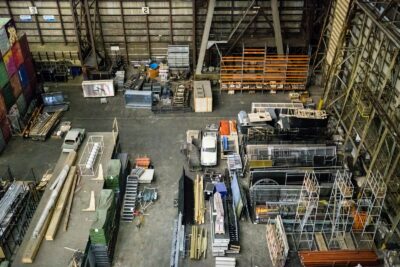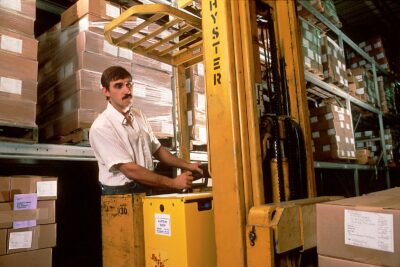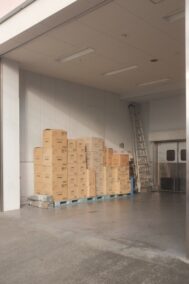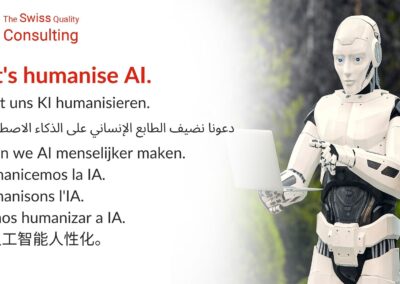Decarbonizing Hard-to-Abate Sectors with CCS Technology
The Role of CCS in Reducing Industrial Emissions
The deployment of Carbon Capture and Storage (CCS) in industrial decarbonization is a critical strategy for reducing greenhouse gas emissions in sectors that are challenging to abate. Industries such as cement, steel, and chemicals are significant contributors to global emissions, and they face limited alternatives for reducing their carbon footprint. In regions like Saudi Arabia and the UAE, where industrial activity is a cornerstone of economic development, CCS offers a viable solution for achieving sustainability goals without compromising industrial growth.
CCS technology involves capturing carbon dioxide emissions from industrial processes and storing them underground in geological formations. This process prevents CO2 from entering the atmosphere, thereby mitigating the impact of industrial activities on climate change. In Riyadh, for instance, the integration of CCS in the cement industry can significantly reduce emissions, aligning with the city’s commitment to environmental sustainability.
Moreover, CCS supports the decarbonization of industries by providing a bridge to a low-carbon future. While renewable energy sources and electrification are being developed, CCS enables immediate reductions in emissions from existing industrial operations. In Dubai, the adoption of CCS in the steel industry helps meet emission reduction targets while maintaining production levels, demonstrating the technology’s potential to balance economic and environmental priorities.
Technological Advancements in CCS
The effectiveness of Carbon Capture and Storage (CCS) in industrial decarbonization is enhanced by continuous technological advancements. Innovations in capture technologies, such as chemical absorption, physical adsorption, and membrane separation, have improved the efficiency and cost-effectiveness of CCS systems. These advancements are crucial for making CCS a practical option for industries in Saudi Arabia and the UAE.
Chemical absorption, one of the most mature CCS technologies, uses solvents to capture CO2 from industrial emissions. This method is widely used in the UAE’s chemical industry to reduce the carbon footprint of production processes. Physical adsorption and membrane separation, on the other hand, offer alternatives that are being explored for their potential to capture CO2 more efficiently. In Riyadh, pilot projects using these technologies are underway, showcasing the region’s commitment to innovation in CCS.
Furthermore, advancements in storage techniques ensure that captured CO2 is securely and permanently stored. Geological formations, such as depleted oil and gas fields and saline aquifers, provide suitable storage sites. In Dubai, extensive geological surveys have identified potential storage locations, paving the way for large-scale CCS deployment. These technological advancements not only enhance the viability of CCS but also contribute to the global knowledge base on carbon management.
Leadership and Management in CCS Projects
Effective leadership and management are crucial for the successful implementation of Carbon Capture and Storage (CCS) in industrial decarbonization. Business executives and mid-level managers in Saudi Arabia and the UAE must champion the adoption of CCS technology and ensure its integration into corporate sustainability strategies. Their vision and commitment to reducing emissions drive the growth of CCS initiatives, making them an integral part of the region’s industrial landscape.
Leaders must engage in strategic planning and resource allocation to support CCS projects. This involves collaborating with policymakers, investors, and technology providers to create a conducive environment for CCS deployment. In Riyadh and Dubai, strong leadership is essential to navigate the complexities of CCS projects and to integrate them into existing industrial operations seamlessly.
Project management skills are equally important in the deployment of CCS technology. Project managers oversee the logistics of integrating CCS systems into industrial processes, from initial planning to implementation and ongoing maintenance. Their expertise ensures that projects comply with regulatory requirements and achieve financial viability, enhancing the overall effectiveness and sustainability of CCS initiatives.
Policy Frameworks and Incentives for CCS
Policy frameworks and incentives play a pivotal role in promoting the deployment of Carbon Capture and Storage (CCS) in industrial decarbonization. Governments in Saudi Arabia and the UAE have introduced various policies and financial incentives to encourage the adoption of CCS technology. These measures include tax credits, grants, and subsidies that reduce the financial burden on industries and accelerate the implementation of CCS projects.
In Saudi Arabia, policy frameworks that support CCS are integrated into the national vision for sustainability and economic diversification. The government’s commitment to reducing emissions and fostering innovation in the energy sector creates a favorable environment for CCS initiatives. In Dubai, regulatory frameworks ensure that CCS projects comply with environmental standards, while financial incentives make these projects more attractive to investors.
Moreover, international collaborations and partnerships enhance the effectiveness of policy frameworks. By participating in global initiatives and sharing best practices, Saudi Arabia and the UAE can leverage international expertise and resources to advance their CCS projects. These collaborative efforts contribute to the global fight against climate change and position the region as a leader in sustainable industrial practices.
Future Prospects: Advancing CCS in Industrial Decarbonization
The future of Carbon Capture and Storage (CCS) in industrial decarbonization looks promising, with continuous advancements in technology and policy frameworks driving the development of more efficient and scalable CCS systems. Future CCS projects will likely incorporate even more sophisticated capture techniques and storage solutions, enhancing their effectiveness and reducing costs.
In addition to technological advancements, new regulatory frameworks and international collaborations will play a significant role in promoting CCS. By adopting best practices and sharing knowledge across borders, countries like Saudi Arabia and the UAE can lead the way in sustainable industrial development. This collaborative approach ensures that CCS projects contribute to global emission reduction goals and support the transition to a low-carbon economy.
Moreover, integrating community engagement and education into CCS projects can enhance public acceptance and support. By involving local communities in decision-making processes and raising awareness about the benefits of CCS, projects can gain public support and ensure long-term success. This holistic approach to sustainability aligns with the broader goals of environmental stewardship and community resilience.
Conclusion: Embracing CCS for Industrial Decarbonization
The integration of Carbon Capture and Storage (CCS) in industrial decarbonization is essential for reducing emissions in hard-to-abate sectors such as cement, steel, and chemicals. By leveraging advanced technologies, implementing supportive policy frameworks, and providing financial incentives, countries like Saudi Arabia and the UAE are enhancing their ability to develop sustainable industrial solutions. These innovations ensure that CCS projects are financially viable, environmentally sustainable, and aligned with national emission reduction goals.
As we continue to advance in this field, the role of leadership and effective project management cannot be overstated. Business executives, mid-level managers, and project leaders must collaborate to ensure the successful implementation and maintenance of CCS projects. Their efforts will not only enhance public health but also demonstrate the transformative power of modern technology in industrial decarbonization.
In conclusion, the future of industrial decarbonization is bright, with CCS technology at the forefront of this evolution. By prioritizing innovation, collaboration, and community engagement, we can create a more sustainable and resilient world, where industrial activities contribute to both economic growth and environmental preservation.
#CarbonCaptureAndStorage, #IndustrialDecarbonization, #CementIndustry, #SteelIndustry, #ChemicalIndustry, #RenewableEnergy, #BusinessSuccess, #LeadershipSkills, #ProjectManagement























